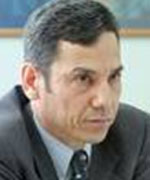Abdol-Fattah Soltani is an Iranian human rights attorney and co-founder of the recently shut Center for the Defenders of Human Rights. Rooz spoke with him about the closure and related issues. “Power in the judiciary is in the hands of the hardliners,” he believes. Here are the details.
Rooz (R): Was the closure of the Center for the Defenders of Human Rights legal?
Abdol-Fattah Soltani (AFS): The Law of Parties provides that if the Ministry of Interior decides to close an organization it must do it through a court order, and that the prosecutor has no right to intervene in such a matter. Even if we assume that the Ministry of Interior makes such a request from a public prosecutor, this right has not been defined in law for the prosecutor. Secondly, this order was issued verbally through a phone call, so consequently two violations took place.
R: Is there currently an organization that is active without an operational permit?
AFS: Many organizations and groups on the right that are active today lack operational permits. For example, Jame Rohaniyat Mobarez (Association for Militant Clergy), Jame Modaresin Hoze Elmie Qom (Teacher of the Qom Theological Center), Abadgaran, and a group known as Rayehe Khosh Khedmat (supporter of Ahmadinejad’s administration) are active without any permit. Can we have two different standards in this regard in this country? If working without a permit is illegal, then why do then not stop the work of these groups? IN any case, there are two types of parties and groups in Iran: Those with a permit and those without. And both of them have the right to operate.
R: If that is the case then what legal grounds were used to shut the Center?
AFS: This is what has to be asked of the ministry of interior. Of course it was during Mr. Khatami’s administration that a permit was not issued in this regard. Perhaps there was a pressure on them not to issue it. We believe our rights have been violated. Regarding why they closed the Center, I must say that there is a hardline group in the judiciary that is small but powerful which acts unlawfully. They confront any group that they dislike. I am example of this. I was in prison for 7 months and 9 days. Then I was acquitted, but I still remain on the exit ban list. I would like to ask senior members of the state to stop this group from its violations. Why are they not confronted? I remain on the exit ban list despite 4 counts of acquittals. What is the law through which they have banned me from leaving the country?
R: If the group is small, how come it can do whatever it wishes?
AFS: Members of this group exist only in some parts of the judiciary. We believe that there are some very qualified and outstanding judges in this very judiciary who are not posted in important positions. Key posts are occupied by hardliners who do not observe the law. I can loudly say that Mr. Shahrudi (head of Iran’s judiciary) is either incapable of dealing with this group or is ignorant of their activities. In any case, during the 9 years in which he has held this leadership position he has not dealt with this small rogue group that acts unlawfully.
R: My last question is about the work of the Center. Since its offices are shut, is the work continuing?
AFS: As I said, no court in the country has as of today issued a judgment for the dissolution of the Center. So the Center remains a legal organization that continues its work in the same fashion as before.
Source: http://www.roozonline.com/english/archives/2009/01/hardliners_are_in_power_at_the.html
Leave a Reply